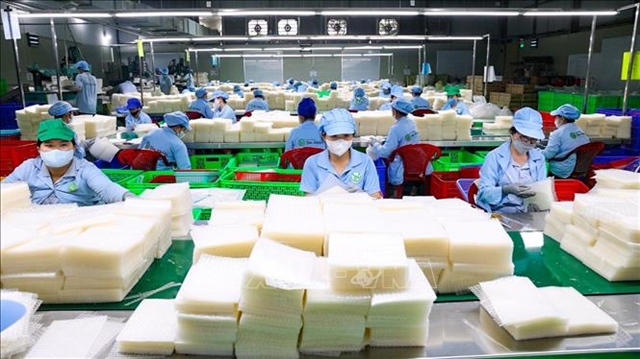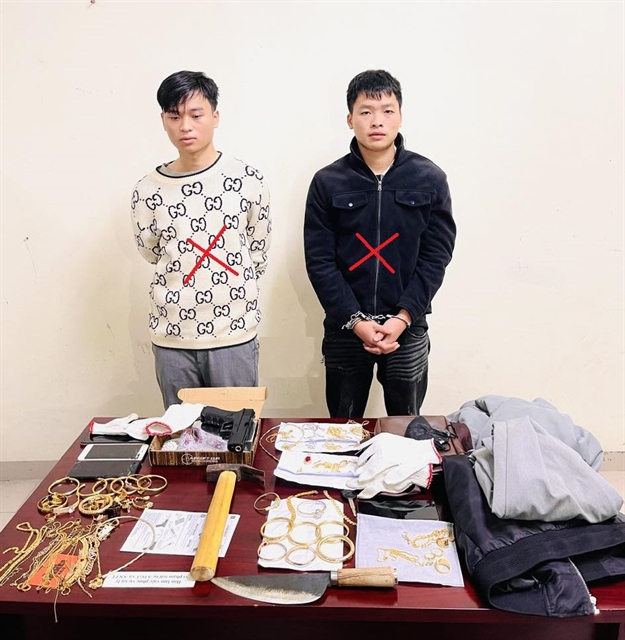 World
World

Japanese Prime Minister Shinzo Abe on Friday announced his intention to resign at a meeting of his ruling Liberal Democratic Party, saying he made the decision to minimize the impact of his deteriorating health on the party.
.jpg)
|
| File photo taken in August 2019 shows Japanese Prime Minister Shinzo Abe and his wife Akie preparing to board a plane in Bordeaux, France, after Abe attended a Group of Seven summit. Abe will step down from his post due to health concerns, a source from his Liberal Democratic Party said on August 28. — KYODO/VNA PHOTO |
TOKYO — Japanese Prime Minister Shinzo Abe on Friday announced his intention to resign at a meeting of his ruling Liberal Democratic Party, saying he made the decision to minimize the impact of his deteriorating health on the party.
"I will not be able to make proper judgements due to illness," Abe was quoted by an LDP executive as telling party members on his reason for the decision.
Abe will not name an acting prime minister but serve until the next leader is chosen, according to sources familiar with the matter.
Abe, who has been premier since December 2012 following his first one-year stint in the post between 2006 and 2007, just recently achieved the feat of staying in the top government post for the longest uninterrupted term in the country's history.
He was scheduled to meet the press from 5pm in what would be his first press conference at his office since June 18 to address the speculations about his health condition, and also the government's coronavirus response.
The 65-year-old president of the LDP made a series of hospital visits in August for what his aides called a "regular health checkup" and follow-ups after he was reported as having vomited blood at the prime minister's office in early July.
Questions about Abe's health have been raised from time to time after he abruptly resigned due to worsening of his chronic illness -- ulcerative colitis -- in 2007, only a year after becoming the country's youngest premier in the postwar era at age 52.
After returning to power in 2012, Abe said he had overcome the intestinal disease with the help of a new drug. On August 24, he became Japan's longest-serving prime minister by number of consecutive days in office, eclipsing the previous record of 2,798 days held by his great uncle Eisaku Sato (1901-1975).
But Abe's health came under fresh scrutiny with his repeated hospital visits after he kept a low profile without holding any press conferences for nearly 50 days between mid-June and early August, despite calls for him to explain the government's handling of the coronavirus to the public.
His government's measures to deal with the pandemic have been plagued by missteps, including the distribution of washable cloth face masks, which proved highly unpopular as they were seen as being too small and arriving too late.
The masks became known as "Abenomask," which means "Abe's mask" in Japanese and is a pun on his touted "Abenomics" economic policy package that calls for bold monetary easing by the Bank of Japan, generous fiscal spending and deregulations to spur economic growth.
The "Go To Travel" campaign to subsidize domestic trips to help the tourism industry battered by the coronavirus similarly came under fire for being launched despite a resurgence in virus cases across the country and for causing confusion through its last-minute change to exclude trips to and from Tokyo.
A Kyodo News opinion poll in July found 59.1 per cent had been discontent with the government's handling of the pandemic. The approval rate for Abe's Cabinet, which stood at 62 per cent at the start of his second stint, came to 36.0 per cent in August.
Abe had initially appeared to be on course to shore up the country's economy with Abenomics by setting the inflation target at 2 percent and introducing massive monetary easing, which has given a boost to Japanese stock indexes.
But more than seven years after the launch of his government, Japan has yet to meet the inflation target and the prolonged low interest rate has hurt the health of financial institutions.
He raised the consumption tax twice, to 8 per cent in April 2014 and to 10 per cent in October 2019, but has put off achieving the goal of making the state and municipal governments move into the black to fiscal 2025 from the original target of fiscal 2020.
Abe was often regarded as a hawkish conservative seeking to raise Japan's profile overseas.
In 2014, he went ahead with a reinterpretation of the pacifist Constitution to enable the use of collective self-defence -- defending allies even without an attack on Japan itself -- and expanded the role of its defence forces under new security legislation in 2016. - KYODO




